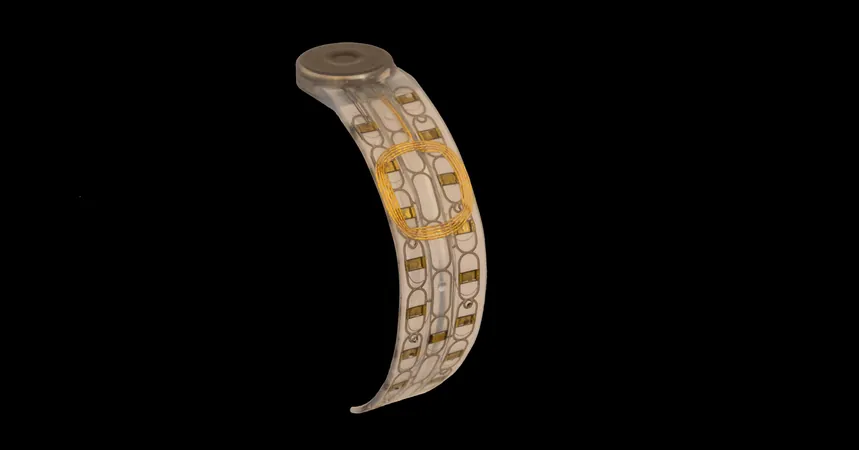
Revolutionary Muscle Implants: A Game-Changer for Mind-Controlled Prosthetics!
2024-12-09
Author: Wai
Introduction
In a groundbreaking development that could transform the lives of amputees, a new technology is emerging that allows users to control prosthetic limbs with their thoughts—without the need for invasive brain surgery! This innovation comes from Phantom Neuro, a pioneering startup based in Austin, Texas, and it could lead to a new era of prosthetic function and user satisfaction.
The Story of Alex Smith
The story begins with Alex Smith, who lost his right arm in a tragic boating accident at just 11 years old. After years of struggling with traditional myoelectric arms, which were slow and limited in function, Smith's experience is unfortunately common among amputees. A recent study found that while 20.7% of upper limb amputees use myoelectric prostheses, a staggering 74.4% prefer body-powered alternatives, which often leave users dissatisfied.
Phantom Neuro's Innovative Approach
Phantom Neuro's innovative approach involves developing a thin, flexible muscle implant that interfaces directly with the user's muscle signals. This groundbreaking system promises to enhance control over prosthetic limbs by decoding movements from the users’ muscle contractions—essentially translating their thoughts into action. Each tiny implant captures electrical impulses from the muscles, overcoming the challenges faced by current surface electrodes that can be erratic and less accurate.
Trials and Results
During trials, participants used a wearable version of Phantom's sensors, achieving an impressive average accuracy of 93.8% across various gestures. One key advantage of this technology is the significantly reduced latency—the time it takes for a signal to transform into movement—measured at less than 200 milliseconds. This quick responsiveness mirrors natural human movement, making prosthetics feel more like an integral part of the body.
Statements from Leadership and Experts
Phantom Neuro's CEO, Connor Glass, expressed the potential of this technology, noting that traditional robotic limbs have been unappealing due to poor control systems. The new muscle implants aim to address these shortcomings directly, allowing for a range of movements that could include everything from simple grasping to more complex actions. Researchers like Paul Marasco from the Cleveland Clinic highlight that faster and more accurate gesture recognition is crucial for creating seamless user experiences.
Comparison with Other Technologies
While other companies, such as Elon Musk's Neuralink, are pursuing brain-computer interfaces to control prosthetics directly from the brain, these systems come with higher risks and surgical complexities. The minimal invasiveness of Phantom's muscle implants is likely to make them more appealing for users.
Future Prospects
As Glass mentions, the implants can potentially be inserted through a small incision without the need for extensive surgical procedures typically associated with brain implants. This opens up possibilities for outpatient procedures, making advanced prosthetic capabilities more accessible. Looking toward the future, Phantom plans to begin a clinical trial for their implantable version in 2025, and Alex Smith has expressed a keen interest in participating.
Conclusion
If successful, this technology could redefine how amputees interact with the world, empowering them to perform daily tasks with newfound ease. As Smith aptly puts it, 'I think this is going to be a total game changer.' Stay tuned as we follow Phantom Neuro’s groundbreaking journey towards revolutionizing prosthetics and improving lives for amputees everywhere!



 Brasil (PT)
Brasil (PT)
 Canada (EN)
Canada (EN)
 Chile (ES)
Chile (ES)
 España (ES)
España (ES)
 France (FR)
France (FR)
 Hong Kong (EN)
Hong Kong (EN)
 Italia (IT)
Italia (IT)
 日本 (JA)
日本 (JA)
 Magyarország (HU)
Magyarország (HU)
 Norge (NO)
Norge (NO)
 Polska (PL)
Polska (PL)
 Schweiz (DE)
Schweiz (DE)
 Singapore (EN)
Singapore (EN)
 Sverige (SV)
Sverige (SV)
 Suomi (FI)
Suomi (FI)
 Türkiye (TR)
Türkiye (TR)